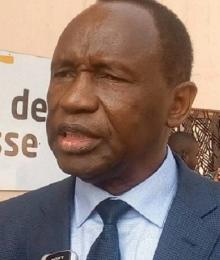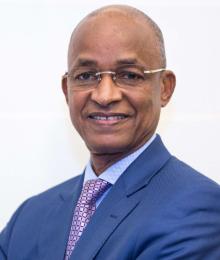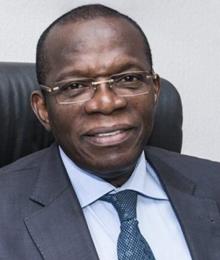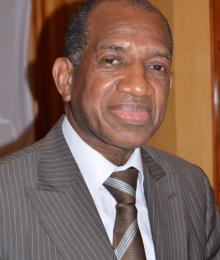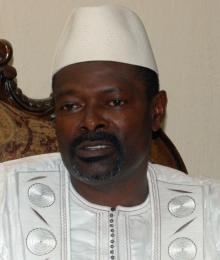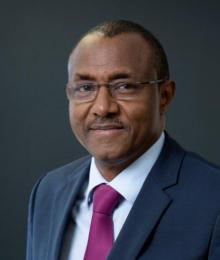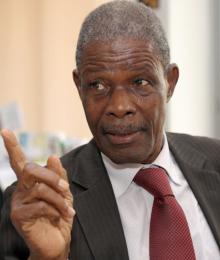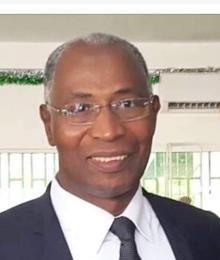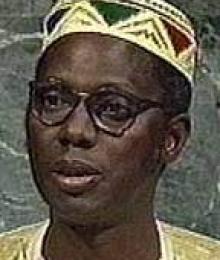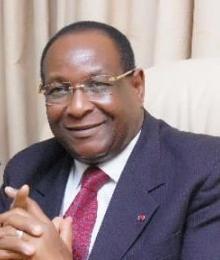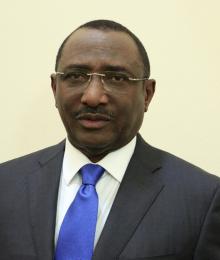
Sidya Touré is a political figure of contemporary Guinea. Born in 1945 in Côte d'Ivoire, this statesman held the strategic post of Prime Minister from 1996 to 1999, initiating ambitious economic reforms and restoring relations with international partners. After his dismissal, he became an ardent defender of democracy, founding and chairing the Union of Republican Forces (UFR), a major opposition party.
As a candidate in the 2010 presidential election, he won an honorable score of 13% of the vote. Appointed High Representative of the Head of State in 2016, Touré played a key role as a mediator before resigning in 2018. His remarkable career has made it a symbol of Guinean aspirations for political stability, good governance and economic and social development.
Introduction
Sidya Touré (born 1945 in Dimbokro, Côte d'Ivoire) is a Guinean politician. This statesman marked his country's recent history by serving as Prime Minister from 1996 to 1999 before becoming an ardent defender of democracy at the head of the Union of Republican Forces (UFR), a major opposition party. His high and low career reflects the challenges Guinea has faced, from dictatorship to democratic transition.
Education
Sidya Touré has a solid education, obtaining a bachelor's degree in business law and a diploma from the École nationale du Trésor de Paris. This high-level education has enabled her to acquire the skills needed to hold responsible positions in the public administration and the private sector in Côte d'Ivoire, her adoptive country for several decades.
Career
Sidya Touré's career began in 1972 in Côte d'Ivoire, where he held several important positions in the State Treasury and the Ministry of Economy and Finance. His financial expertise and rigorous file management quickly propelled him to the highest levels of the Ivorian government.
Between 1977 and 1983, he was appointed to several strategic positions, including as Director of Domestic Trade and Distribution, Director of the General Consumer Price Equalization Fund, and Administrator of key companies such as SODESUCRE, SIR and BP. He has also chaired the OCCA, which is responsible for the collection and marketing of rice and maize in the country.
From 1983 to 1989, Sidya Touré held the post of Cabinet Director of the Minister of State, responsible for the negotiations for the re-leveling of Ivorian public debt. His role has been crucial in managing this major economic crisis, demonstrating his ability to negotiate and solve complex problems.
Prime Minister
In July 1996, Sidya Touré was appointed Prime Minister of the Republic of Guinea by President Lansana Conté. His mandate has been marked by ambitious reforms aimed at recovering the Guinean economy and re-establishing relations with international partners.
Among its main achievements are the restoration of water and electricity supplies in the country, the refinement of the public service record and the renewal of relations with the European Union. In just one year, it managed to raise $258 million in funding, a remarkable achievement given the precarious situation of Guinea at the time.
In addition, Sidya Touré negotiated a formal programme with the International Monetary Fund (IMF) in 1996, allowing Guinea to obtain the status of a highly indebted poor country (HIPC) and to receive financial assistance crucial to its development.
However, despite these notable achievements, Sidya Touré was dismissed from his post of Prime Minister by President Conté in March 1999, after only three years in office. This decision sparked strong criticism from the opposition and the international community, who saw Touré as a reformist capable of redressing the country.
Political commitment
After his dismissal, Sidya Touré joined the Guinean political opposition, becoming an influential voice in the struggle for democracy and good governance. In May 2000, he was elected president of the Union of Republican Forces (UFR), a centrist, liberal and social party founded in 1992.
UFR advocates the building of a democratic and pluralist society in Guinea, with objectives such as civil reconciliation, the promotion of a policy of growth and development, the fight against poverty and exclusion, and the mobilization of young people and women.
Under the leadership of Sidya Touré, the UFR has become an indispensable player in the political scene of Guinea, advocating the stability of the country and successfully deploying throughout the national territory through its cross-cutting and non-ethnic approach.
The Union of Republican Forces (UFR)
The Union of Republican Forces (UFR) is a main political party in Guinea, founded in 1992 and led by Sidya Touré since 2000. Its centrist, liberal and social ideology makes it a key player in the promotion of democracy and economic development of the country.
Under the auspices of Sidya Touré, the UFR has established itself as a credible opposition force, defending the values of reunification, reconciliation and progress for all Guineans, without distinction of ethnic or regional origin. This cross-cutting approach has enabled the party to establish itself strongly throughout the national territory.
UFR dreams of a healthy and prosperous Guinea, where political stability and sustainable economic development prevail. To this, the party advocates structural reforms aimed at eradicating poverty, promoting education and health, stimulating private investment and strengthening democratic governance.
2010 presidential election
In the 2010 presidential election, the first free and democratic election in Guinea's history, Sidya Touré presented himself as the UFR candidate. Although he did not win, he obtained an honorable score of 13,02% of the vote in the first round, placing third out of a total of 24 candidates.
Despite his defeat, Sidya Touré played a decisive role in the electoral process by calling on his supporters to vote for Cellou Dalein Diallo, the opposition candidate, in the second round. This strategic decision helped shift the results in favour of Diallo, although Diallo was eventually defeated by Alpha Condé.
The 2010 campaign confirmed Sidya Touré's status as a respected figure of the Guinean opposition, capable of gaining significant popular support and weighing on the country's major political issues.
High Representative of the Head of State
In January 2016, President Alpha Condé appointed Sidya Touré as the new High Representative of the Head of State of Guinea. This appointment, welcomed by many observers as a gesture of political openness, allowed Touré to play a role of mediator and adviser to the executive.
For three years, Sidya Touré held this strategic position as President Alpha Condé's High Representative. Its role was to facilitate dialogue between the government and the opposition, alleviate political tensions and promote national reconciliation.
Through his experience and influence, Sidya Touré has been able to play a key mediator role in several major political crises, helping to resolve conflicts and find consensual solutions. His expertise in governance and state reform has also been used to advise the President on various strategic issues.
However, despite his tireless efforts, persistent political tensions in Guinea eventually led Sidya Touré to resign in December 2018. This decision was perceived as a strong signal on his part, reflecting his frustration over the obstacles encountered in promoting genuine national dialogue and lasting reconciliation.
Conclusion
Sidya Touré's political career reflects the challenges faced by Guinea in its pursuit of democracy and development. From his visionary term as Prime Minister in the 1990s to his unwavering commitment to the opposition, through his role as mediator as the High Representative of the Head of State, Touré has demonstrated a firm determination to serve the interests of his country.
Although his vision of a prosperous and united Guinea has not yet been fully realized, Sidya Touré’s legacy will remain that of a brave reformer, a defender of democracy and a gatherer capable of transcending ethnic and regional divisions. His journey is an inspiration for future generations of Guinean leaders, eager to continue the struggle for political stability, good governance and economic and social progress.
Ultimately, Sidya Touré embodies the hope of a reconciled and prosperous Guinea, where every citizen, regardless of their background, can contribute to building a united nation, strong and proud of its legacy. His unwavering commitment to these ideals makes him a true patriot and a symbol of resilience for all Guineans.











